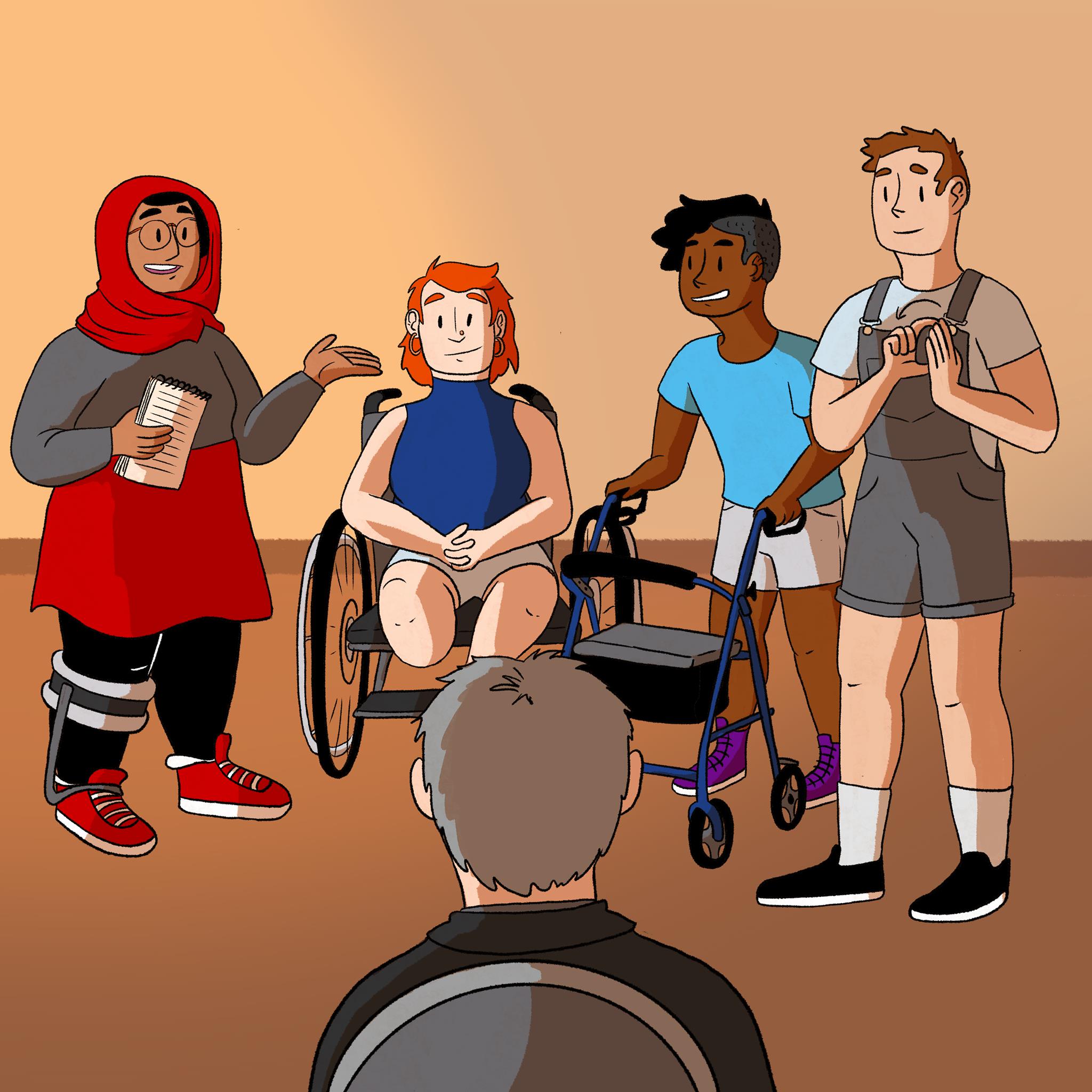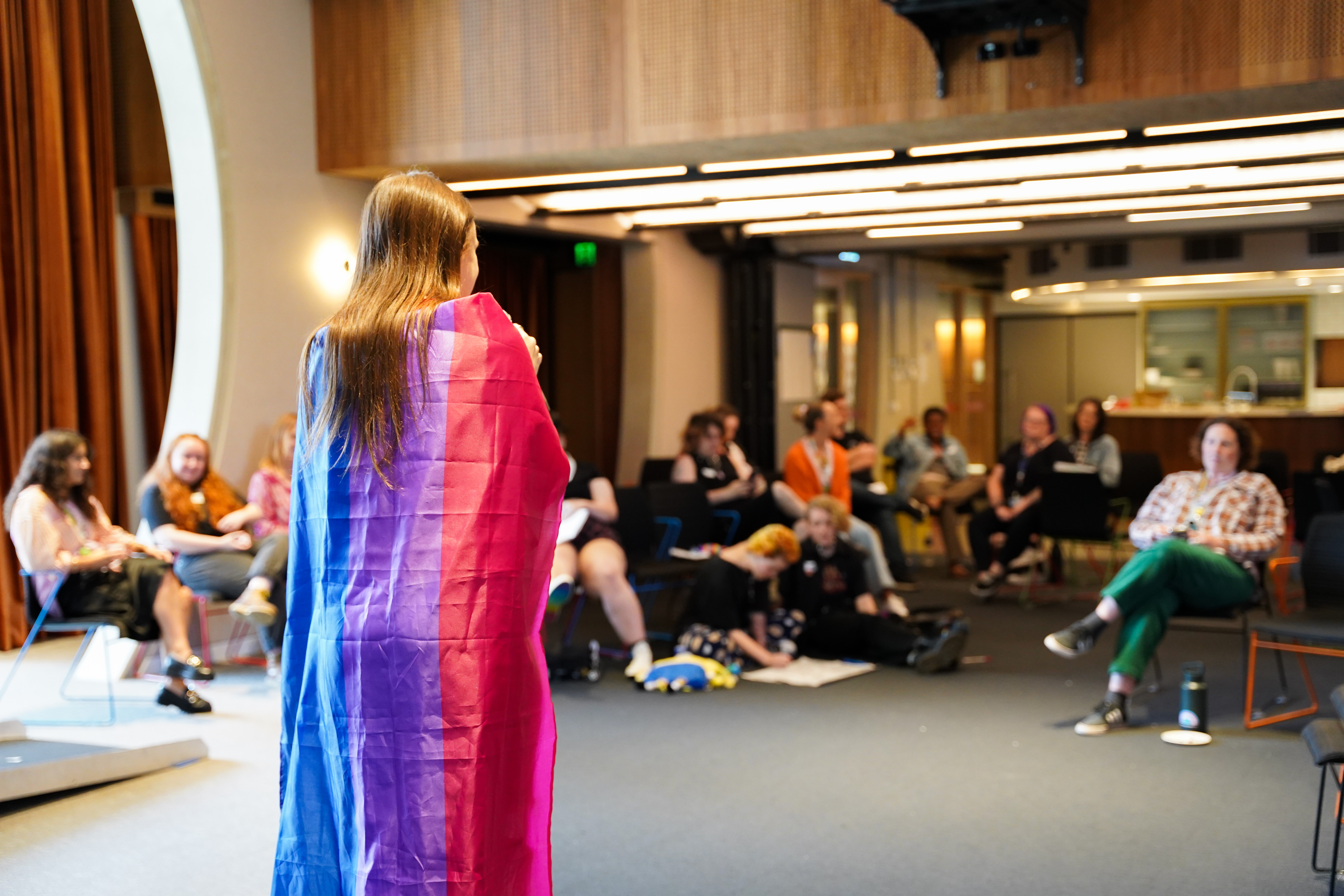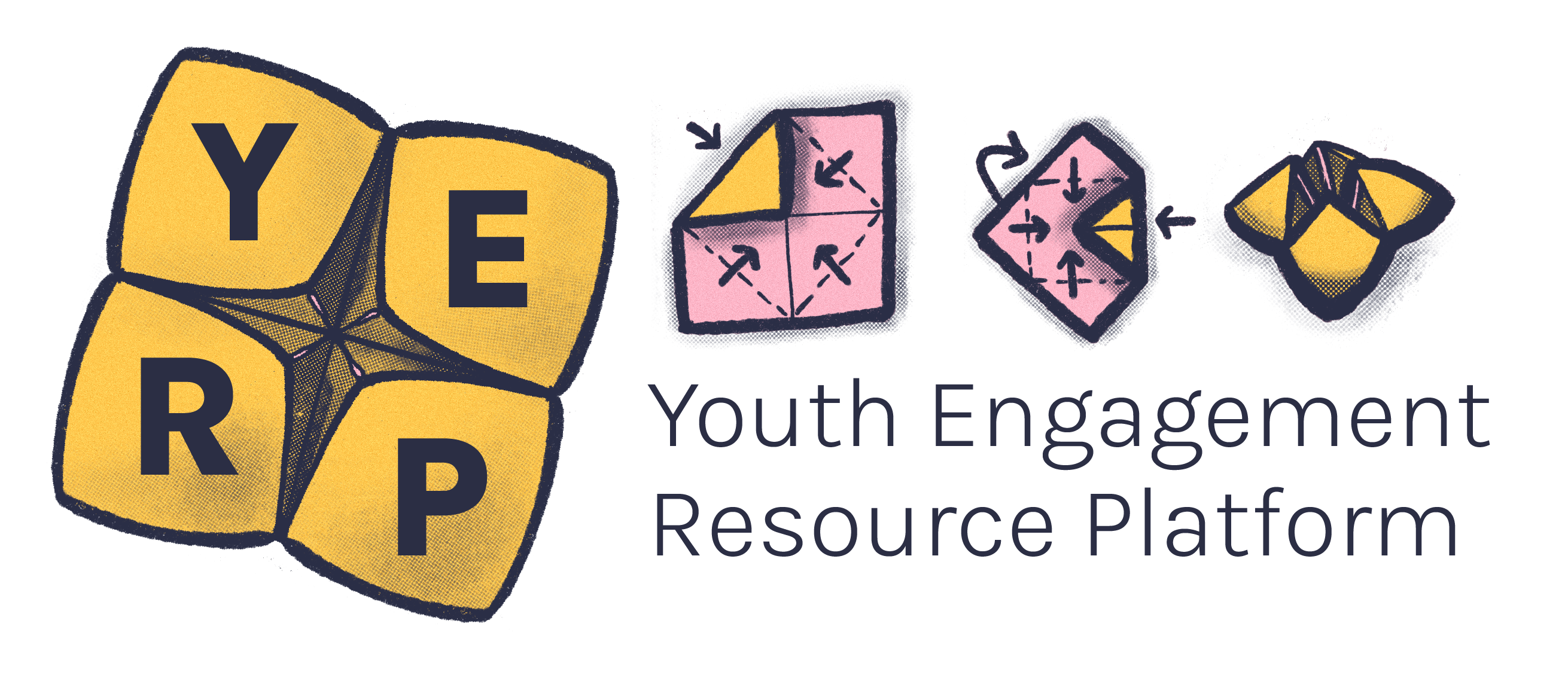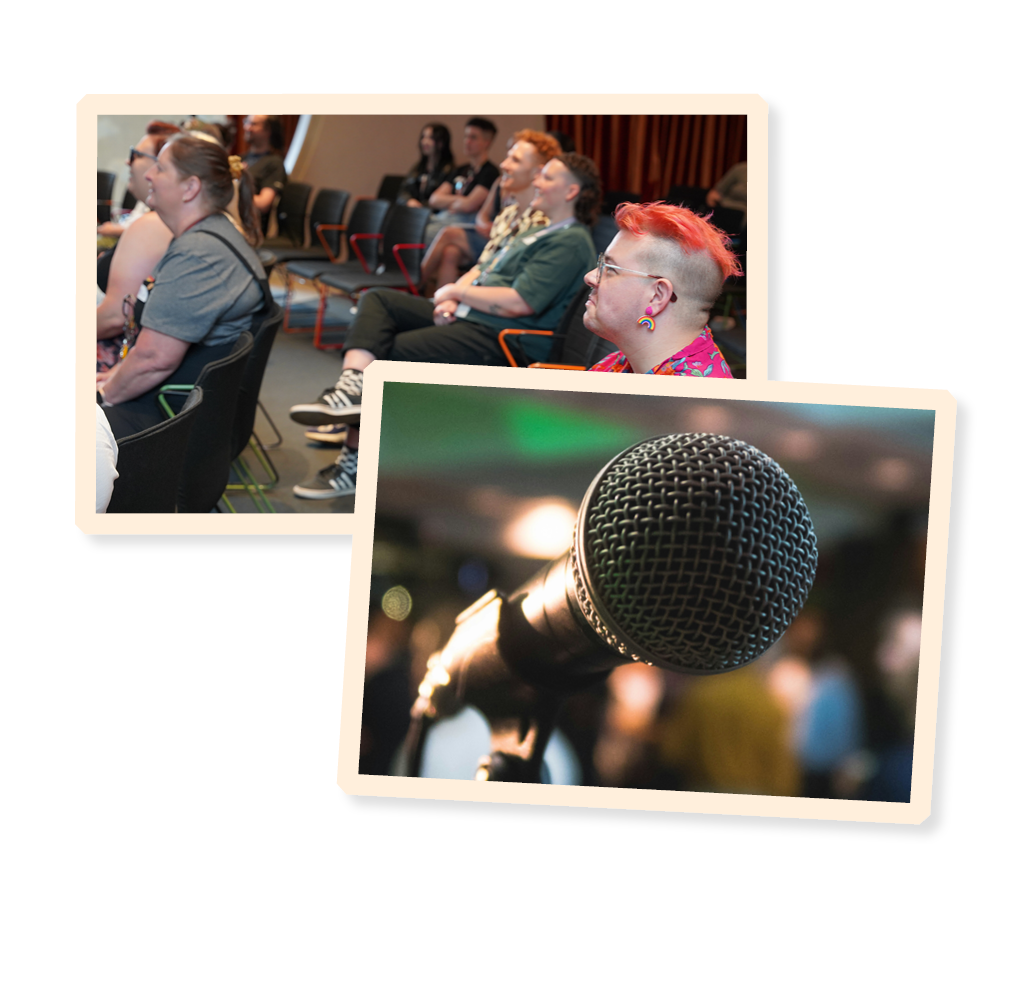Language plays a big role in shaping a space. The way we use it reflects our values and has the potential to support perceptions of other people. As young people moving through the world, it’s important to know that language matters, and be mindful of the effect it can have on friends, peers and colleagues.1
When we use language inclusively, we acknowledge people’s diverse values, cultures, and experiences. This means we are being respectful of all people.
On the other hand, language that is derogatory or discriminatory can disrespect or exclude people. Even if unintentional, this language can be harmful and perpetuate stereotypes.2,3
Inclusive language is not about impinging on free speech or political correctness; it is about communicating in a way that is accessible and respectful and values, includes and empowers all members of your audience.
–UQ guide to using inclusive language
Here we have provided information on inclusive language for three specific cohorts of people. But there are many more cohorts, each with unique and multi-faceted considerations around language.
We encourage you to seek information from organisations who are part of certain cohorts or work with them for the best information around inclusive language.
Also, remember that language changes! So, what we have written here is just a starting point. Stay responsive and be open to continuous learning.
The aim of using inclusive language is to make sure that everyone feels included and respected and that people feel safe and empowered.1
Key things to consider:5
Impact:
-
Think about the impact your words and phrases might have on other people.
-
Consider whether it’s necessary to reference someone’s personal characteristics.
-
Consider whether the language you’re using contains Special words or expressions used by a profession or group that are difficult for others to understand.jargon, technical terms or acronyms that might be hard to understand or could exclude others.
-
Use positive language when talking to someone about their experiences
-
Avoid terms or expressions that could reflect prejudiced, stereotyped, or discriminatory views of a group of people.5
Awareness:
-
Be aware of the diversity within the group of people you’re with and within, your community and society more broadly.
-
Have an awareness of and learn about the differences between people who might share certain identities or be within the same community.
-
Respect how people choose to be addressed. Where appropriate, ask the language a person prefers and respect their answer.5
-
Consider the context of the language being used. It may be appropriate for people belonging to a certain group or community to use specific terms and phrases, however if you aren’t part of that certain community, it may not be appropriate for you to use the same words.5
Learning and reflection:
-
Don’t make assumptions about groups, communities or individuals.5
-
Reflect on if any harmful beliefs about (or Microaggressions can be verbal or non-verbal, and include insensitive statements, questions, actions or assumptions towards people of a marginalised group.micro-aggressions towards) groups are present in your language, and try to remove them.
-
Be open to how language changes over time and if you find yourself experiencing resistance or tension then question what this is bringing up for you. People have a right to safely identify as they wish.
-
Be curious about language and how people identify – be careful not to burden individuals with your education. Be committed to both proactively and reactively learning.
YACVic acknowledges that the work that First Nations organisations do in this space, and we encourage you to seek out their work, resources, training, and engage with First Nations activists, artists and leaders.
YACVic is not an expert in this space but we wanted to give you some considerations about how you can ensure your language is inclusive and culturally safe.
Some considerations
- Use the term and phrase ‘Aboriginal and Torres Strait Islander’. Do not use acronyms or abbreviate words for your own ease.7
- Use plural terms for First Nations ‘histories’, ‘perspectives’ and ‘ways of being’.7 These terms show respect and acknowledge the diversity of identities and cultures that exist across Australia.7
It’s also important to look out for, question and remove negative and language that places a person as the cause of an issue or disadvantage rather than the structural systems that have placed them in a position of disadvantage.deficit based language. Instead, acknowledge the ways you support their agency and leadership, which is an important aspect of allyship.7
Acknowledgment of Country
Part of being inclusive and standing in solidarity with Aboriginal and Torres Strait Islander people is doing an Acknowledgement of Country.
This should happen regardless of whether there are Aboriginal and Torres Strait Islander people present at an event or meeting.6
Acknowledgments of Country are a way of showing respect and appreciation to the traditional owners of the lands that you are on, or where an event is taking place.
Aboriginal and Torres Strait Islander peoples have faced decades of exclusions and hostility since their right to Country is not recognised in the Australian Constitution.
Recognising they are the rightful owners of the land at the beginning of meetings and events shows solidarity with Aboriginal and Torres Strait Islander peoples, as well as respect and appreciation for their caretaking of the lands we live and work on.6
This is a photo of a sign at a 26 January protest. It has the Aboriginal flag and says always was always will be.

At YACVic, we use 'identity first language'.
Identity first language is about pride and autonomy and many people choose to use this language when talking about themselves. Describing yourself as a disabled person is an example of using identity first language.
Another way people may refer to themselves is through 'person first language' such as a 'person with a disability'. This places the focus on the person and de-emphasises disability. The language someone uses is a personal choice - if you aren't sure, just ask!
We really encourage you to do your own research, listen to disabled leaders and young people working in this space, read YDAS’ resources, and attend Together Training.
You could also check out Listenable, a podcast by Dylan Allcott and Angus O'Loughlin.
This is an illustrated artwork of a group of disabled advocates sitting in a circle on chairs.

Using inclusive, gender-neutral language allows everyone to feel comfortable, seen and safe in a space.
-
When addressing people, use gender neutral words like ‘people’, ‘folks’ or ‘friends’.
-
Check in with your friends and peers about the kind of language they prefer to use, not just in relation to their specific identity, but also as a group, or with certain identity terms.
-
For example, people will use the term ‘queer’ as an umbrella term to refer to themselves and other LGBTIQA+ people, while others find this term uncomfortable.
On pronouns, check out this blog - ‘Pronoun rounds, houseplants, and other ways to avoid misgendering a colleague’
We encourage you to seek out resources and training from organisations such as Minus 18, Zoe Belle Gender Collective and Queerspace, where you can learn about LGBTIQA+ terms and identities and pronouns.
The following is information about more specific aspects of inclusive language. Please note, these are more intricate elements of LGBTIQA+ inclusive language, so if the concepts and practice of pronouns are new to you, we suggest engaging in some of the above training or resources from other organisations before tackling those below.
Neo pronouns
Neo pronouns are gender-neutral pronouns that transgender, gender diverse and nonbinary people use as alternatives to ‘they/them’ pronouns. Neopronouns are used when referring to someone in place of their name.4
Common neopronouns are:4
-
Xe/xir/xirs
-
Ze/zir/zirs
-
Fae/faer/faers
There is a photo of the back of a person who has a bisexual flag draped on their back. They are facing an audience.

People make mistakes, this is reality and it’s okay. What is important is that we learn from these mistakes and do better in future.
Language and its meanings change over time
-
What were once inappropriate or weaponised against specific communities, may now be words that are reclaimed by members of those communities.
-
Similarly, what was once used in everyday language may now be inappropriate and should not be used.
Inclusive language changes as society changes. This is why you should stay up to date with the language people are using to describe themselves and check in with them about the words they’re comfortable with you using.
Sometimes you might use language that isn’t safe or inclusive. It’s important to acknowledge this as a mistake, apologise if needed, and be open to learning.
-
For example, you might misgender someone in a conversation. If this happens you can swiftly apologise and ensure you use the correct pronouns going forward. It’s generally a good idea to keep your apology brief, so that the conversation doesn’t become about your error.
There might also be times where you want to safely challenge language that is harmful or non-inclusive. This can be done by ‘calling in’ or ‘calling out’ behaviour. To learn more about this, check out our article on Allyship.
When using inclusive language, you can ask the people you’re speaking to for their language preferences.
-
For example, when meeting someone for the first time, introduce yourself and share your pronouns. Then, ask them to introduce themselves and share what pronouns they use.
-
Remember, someone might not be comfortable sharing their pronouns or may not have heard of them before. You can explain what pronouns are, or show them this resource.
- Amnesty International. (2021). Inclusive Language and Events Guide. https://www.amnesty.org.au/inclusive-language-and-events-guide/
- Department of Education (2019). Inclusion and Diversity Resources. Girl Guides Victoria https://www.guidesvic.org.au/wp-content/uploads/2020/07/Guidelines-for-Inclusive-Language.pdf
- Diversity Council Australia. (n.d). Inclusive Language. https://www.dca.org.au/resources/di-planning/inclusive-language
- Human Rights Campaign. (2022). Understanding Neopronouns. https://www.hrc.org/resources/understanding-neopronouns
- Minus 18. (n.d). LGBTIQ Inclusive Language Guide. https://res.cloudinary.com/minus18/image/upload/v1585712745/LBGTIQ-Inclusive-Language-Guide_bqdbiv.pdf
- Reconciliation Australia. (n.d). Acknowledgement of Country and Welcome to Country. https://www.reconciliation.org.au/reconciliation/acknowledgement-of-country-and-welcome-to-country/
- Reconciliation Australia. (n.d). Demonstrating inclusive and respectful language. https://www.reconciliation.org.au/wp-content/uploads/2021/10/inclusive-and-respectful-language.pdf





